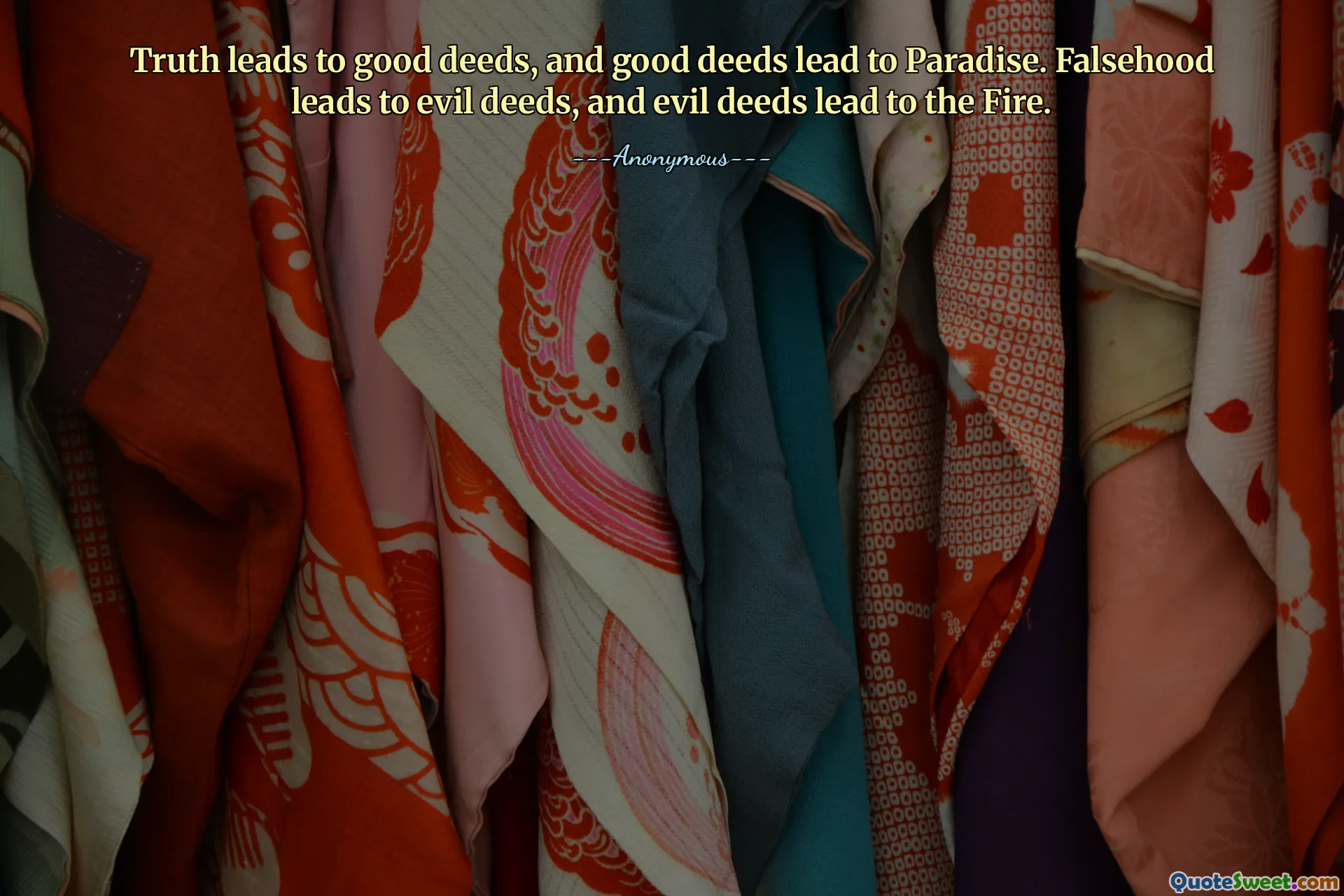
Truth leads to good deeds, and good deeds lead to Paradise. Falsehood leads to evil deeds, and evil deeds lead to the Fire.
This profound quote underscores the fundamental importance of honesty and integrity in our lives. It presents a moral pathway where the pursuit of truth naturally guides individuals towards virtuous actions, culminating in the ultimate reward of Paradise. The moral logic suggests that authentic truthfulness is not merely a virtue but a foundation for ethical behavior that benefits both the individual and society at large. Conversely, the quote warns of the destructive consequences of falsehood, which fosters evil deeds and ultimately leads to punishment in the Fire. This emphasizes the significance of truth as a guiding principle for moral conduct, highlighting how small acts of dishonesty can accumulate and pave the way towards destructive outcomes. The imagery used—paradise and fire—serves as powerful symbols in many spiritual traditions, illustrating the eternal consequences of our moral choices. It reminds us that integrity is not a frivolous virtue but a fundamental aspect of spiritual well-being and societal harmony. Cultivating honesty and goodness in daily life can often be challenging, especially when shortcuts or deception seem tempting. Yet, this quote inspires a commitment to truthfulness, stressing that small honest acts contribute cumulatively to a more righteous and peaceful life. Ultimately, it advocates for living a life grounded in truth, as it is the surest path to spiritual fulfillment and eternal reward, providing value beyond immediate circumstances and pointing toward a higher moral purpose.







